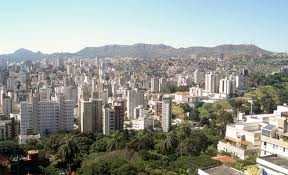During its 111th Session held in Belo Horizonte, Minas Gerais, on 9-12 September 2013, the International Coffee Council adopted the Belo Horizonte Declaration which has been issued to commemorate the 50th anniversary of the ICO.
We, the Member Governments of the International Coffee Organization (ICO), met in Belo Horizonte, Brazil, on the occasion of the commemorative Council celebrating its 50th anniversary. Our discussions were held in the best spirit of cooperation and friendship and with the firm desire to strengthen the coffee economy and the role of the ICO in the world market.
We recall that coffee is the world’s most widely traded tropical commodity. Produced in over 50 countries, and accounting for up to 50% of export earnings of some of these, it supports one hundred and twenty million people worldwide, the vast majority of whom are smallholders in developing countries.
The economic relevance of coffee is underlined by the fact that it generates significant income throughout the supply chain, representing a gross added value of over US$ 458 billion annually.
For 50 years, the ICO has fostered international cooperation in the sector, contributing to the development of a sustainable world coffee economy and to poverty reduction. It has promoted synergies within the commodity market, initiated a programme to improve coffee quality, and provided accurate and reliable data on the coffee economy.
The ICO has launched promotion campaigns that were instrumental in encouraging dynamic growth in consumption in emerging markets, and was the birthplace of the specialty coffee movement. It has channelled over US$100 million in development projects for the benefit of small coffee farmers throughout the world.
In keeping with the objectives of the International Coffee Agreement 2007, we recognize that there is a continuing need for the ICO to support measures aimed at ensuring the economic, social and environmental sustainability of the sector.
Moreover, it must help in tackling present and future challenges such as scarce environmental resources, pests and diseases, the adverse impact of price volatility, rising production costs and changing global weather patterns.
Further, we recognize the need to enhance the role of women and youth in the coffee supply chain and the importance of improving working conditions.
We also acknowledge the need to seek understanding with regard to the structural conditions in international markets and long‐term trends in production and consumption that balance supply and demand, resulting in prices fair both to consumers and to producers.
We also reaffirm the important role of the ICO as a forum for consultations on coffee matters among governments and with the private sector.
We reiterate our commitment to provide objective and comprehensive statistical and economic information on the global coffee market as a means for enabling decisions to be taken on the basis of accurate and timely data. We will continue to enhance market transparency in international trade through further developing data on production and stocks of different types of coffee.
We further agree on the importance of safeguarding the environment and the livelihoods of future generations of coffee farmers, and of implementing measures to reduce the effects of climate change on coffee production.
We aim to intensify efforts to increase global coffee consumption through promotion and market development activities, in particular to develop markets in producing countries with a high potential for increasing consumption, as well as emerging and non‐traditional markets.
We express our concern with the present scarcity of financial resources for coffee development projects and undertake to strengthen the role of the ICO in searching for alternative sources of funding.
We recognize the importance of providing support and technical assistance to all countries adversely affected by pests and diseases. In the present context, we express grave concern with the outbreak of coffee leaf rust in Central America, Mexico, and other affected producing countries, one of the most severe phytosanitary crises ever.
We are committed to cooperate among Member States and with relevant international organizations and institutions – such as the Food and Agricultural Organization (FAO) of the United Nations and the International Fund for Agricultural Development (IFAD) – to share scientific and technical expertise and best practices in this field, as well as to assist the affected producing countries in identifying financial resources within the international community to support their plans to fight the epidemic.
We take note of the constructive recommendations on risk management and finance put forward at the 3rd Consultative Forum on Coffee Sector Finance and encourage their practical use. We understand that aggregation through cooperatives and associations can significantly contribute to improving access to credit and risk management tools, especially by small farm holders, and better equip them to manage market volatility.
In this most cheerful moment, we welcome the outcomes of the 111th Session of the International Coffee Council and rejoice at the celebrations of the ICO jubilee. We express our appreciation to the current Executive Director and the ICO staff.
We acknowledge the invaluable contribution of former representatives to the ICO, as well as former Executive Directors and staff of our Organization, and renew our pledges to honour their legacy.
We would like to extend our thanks to the Brazilian government and the Government of Minas Gerais for hosting these commemorative events.
















